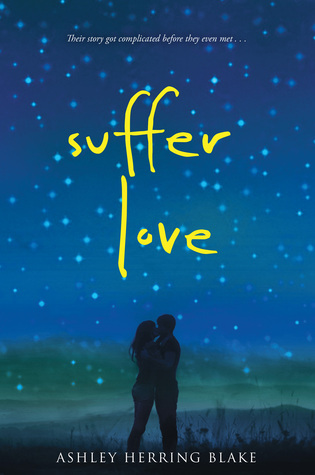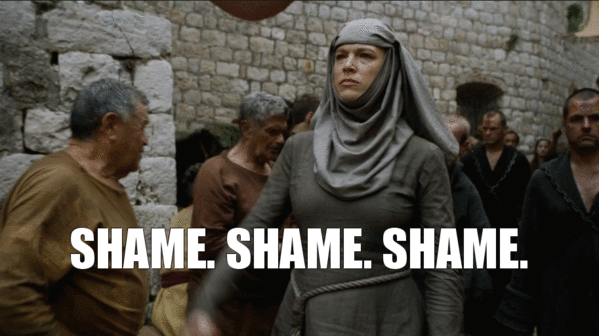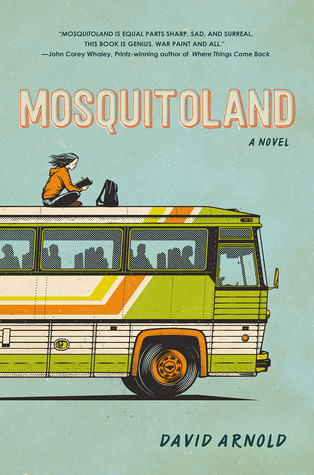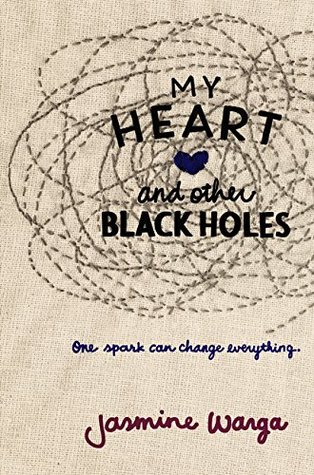
*blows dust off blog*
*taps mic*
Is this thing still on?
Sorry I haven’t posted in so long. It’s been partially Life Things, and partially not being able to muster the energy to write reviews, and partially slacking off in the reading department. But it is a new year (hush, I know we’re in February now, but it’s still a new year since I last posted so it’s okay) and with new years come new resolutions.
And I know everyone says this, but this year, I’m actually going to keep those resolutions.
One of my — let’s call them “goals,” shall we, instead of “resolutions?” — is to read at least one book each week that I’ve never read before. Within this goal, I have a sub-goal (is that a word?) to intentionally diversify my reading. What does this mean? Well, in taking a look over my bookshelves, I’ve come to the realization that left to my own devices, the vast majority of the books I read would fall under the umbrella of “YA Fiction Written By White Authors.”
Let me be clear: There is absolutely nothing wrong with YA Fiction Written By White Authors. There is a huge amount of variety — and quality! — underneath that umbrella, and I’ve discovered some of my favorite books and authors within that pool.
But! Why limit myself to just that one category when there are so many more out there to discover? Reading is one of the best ways to learn about perspectives outside our own, and no matter how much I happen to love what I’d been reading, I could see plenty of benefit and absolutely no downside in trying to be more intentional about reading outside the lane I’ve traveled in for so long.
Plus, let’s be real. My slacking off in the reading department was so tremendous that diversifying my selection will proooobably not result in me reading fewer of the books I was reading before. In fact, I wouldn’t be surprised if I wind up reading more of them, since I’m not going to let myself take three months to finish a single book this year.
Shhhhh don’t judge me.
(Sidebar: remember when I used to read 3-4 books a week? How did I do that? Did I have a time-turner?)
Anyway, what does this look like in practice? Well, being intentional doesn’t mean I’m making myself a meticulously curated reading list or anything. I’m still a really flighty reader, and tend to pick what I read next based entirely on my mood at the time, and I am terrible about finishing books that aren’t really grabbing me. Which means I need to be able to give myself the freedom to pick books based on my mood, and also to put a book down if it’s not gripping me and pick up something else.
So really, my only rule for myself is this: I can’t read two books back to back that don’t differ significantly in a major way (unless the second book is a sequel, which is an amendment I added to the rule for Reasons, because it’s my rule and I’ll do what I want). Easy peasy.
And while I know myself well enough to know I can’t possibly keep up with one full review a week, I also don’t want to not talk about the books I’m reading, because chances are, anything I read in under a week, I’m going to want to recommend.
So after each month, I’ll do a roundup post of every book I completed in that month, with a quick summary of my thoughts for each. I may still do full reviews for some, but the capsule reviews will, at least, allow me to give each book a little bit of love without completely overwhelming me.
Which brings me to…
January
All summaries will be from Goodreads.
-
History Is All You Left Me by Adam Silvera
When Griffin’s first love and ex-boyfriend, Theo, dies in a drowning accident, his universe implodes. Even though Theo had moved to California for college and started seeing Jackson, Griffin never doubted Theo would come back to him when the time was right. But now, the future he’s been imagining for himself has gone far off course.
To make things worse, the only person who truly understands his heartache is Jackson. But no matter how much they open up to each other, Griffin’s downward spiral continues. He’s losing himself in his obsessive compulsions and destructive choices, and the secrets he’s been keeping are tearing him apart.
If Griffin is ever to rebuild his future, he must first confront his history, every last heartbreaking piece in the puzzle of his life.
I loved Adam’s debut, More Happy Than Not (which… it is now occurring to me that I never reviewed here, whoops), and while I didn’t connect with his sophomore novel quite as much, it was still a poignant examination of loss and grief that was sometimes funny, sometimes devastating, and always exceedingly raw and honest. I’ve heard from many people that this book is one of the best examinations of grief they’ve read, as well as one of the more realistic depictions of OCD in a narrator. I don’t know if “enjoyed” is the right word for a book like History, but I thoroughly appreciated it, and thought about it for a long time after I finished.
-
Wolf By Wolf by Ryan Graudin
The year is 1956, and the Axis powers of the Third Reich and Imperial Japan rule. To commemorate their Great Victory, Hitler and Emperor Hirohito host the Axis Tour: an annual motorcycle race across their conjoined continents. The victor is awarded an audience with the highly reclusive Adolf Hitler at the Victor’s Ball in Tokyo.
Yael, a former death camp prisoner, has witnessed too much suffering, and the five wolves tattooed on her arm are a constant reminder of the loved ones she lost. The resistance has given Yael one goal: Win the race and kill Hitler. A survivor of painful human experimentation, Yael has the power to skinshift and must complete her mission by impersonating last year’s only female racer, Adele Wolfe. This deception becomes more difficult when Felix, Adele twin’s brother, and Luka, her former love interest, enter the race and watch Yael’s every move.
But as Yael grows closer to the other competitors, can she bring herself to be as ruthless as she needs to be to avoid discovery and complete her mission?
From the author of The Walled City comes a fast-paced and innovative novel that will leave you breathless.
I don’t read a lot of alternate history, but maybe I should. Wolf By Wolf was a fascinating take on a what-if scenario, examining an alternative outcome of World War II as examined through the lens of a cross-continental motorcycle race. This book was quick-paced and exhilarating, almost a Hunger Games meets Man in the High Castle mashup. I didn’t fully connect on an emotional level with the characters, but the plot kept me consistently intrigued and invested, and I’m eager to see what happens in the sequel.
-
The Girl With All the Gifts by M.R. Carey
Melanie is a very special girl. Dr. Caldwell calls her “our little genius.
“Every morning, Melanie waits in her cell to be collected for class. When they come for her, Sergeant Parks keeps his gun pointing at her while two of his people strap her into the wheelchair. She thinks they don’t like her. She jokes that she won’t bite, but they don’t laugh.
Melanie loves school. She loves learning about spelling and sums and the world outside the classroom and the children’s cells. She tells her favorite teacher all the things she’ll do when she grows up. Melanie doesn’t know why this makes Miss Justineau look sad.
The Girl with All the Gifts is a sensational thriller, perfect for fans of Stephen King, Justin Cronin, and Neil Gaiman.
The Girl With All the Gifts reminded me of being in high school and devouring old-school Michael Crichton novels, if Michael Crichton wrote about zombies. With its thrilling pace and high-intensity setpieces sprinkled throughout, this became one of those books I carried around everywhere with me, sneaking in a page here, a paragraph there, whenever I could. Even though zombies are hardly a new topic in fiction, I thoroughly enjoyed this twist on the undead, which constantly has the reader questioning who the true monsters are. My one quibble would be how the whole book wraps up — it felt a little too convenient for me — but I’m willing to give it a pass on the ending, since the ride to get there was so much fun.
-
The Devil in the White City by Erik Larson
Author Erik Larson imbues the incredible events surrounding the 1893 Chicago World’s Fair with such drama that readers may find themselves checking the book’s categorization to be sure that ‘The Devil in the White City’ is not, in fact, a highly imaginative novel. Larson tells the stories of two men: Daniel H. Burnham, the architect responsible for the fair’s construction, and H.H. Holmes, a serial killer masquerading as a charming doctor.
Burnham’s challenge was immense. In a short period of time, he was forced to overcome the death of his partner and numerous other obstacles to construct the famous “White City” around which the fair was built. His efforts to complete the project, and the fair’s incredible success, are skillfully related along with entertaining appearances by such notables as Buffalo Bill Cody, Susan B. Anthony, Nikola Tesla and Thomas Edison.
The activities of the sinister Dr. Holmes, who is believed to be responsible for scores of murders around the time of the fair, are equally remarkable. He devised and erected the World’s Fair Hotel, complete with crematorium and gas chamber, near the fairgrounds and used the event as well as his own charismatic personality to lure victims.
I was a little surprised by Devil in the White City. Despite it being nonfiction, I was expecting it to read a little closer to a thriller, and while some of the H.H. Holmes segments were definitely suspenseful, and the subject matter was intriguing, the pacing overall was far more literary than thrilling. Additionally, though I was expecting the stories of Burnham and Holmes to intertwine in some way, they never really did, and the two separate narratives almost read like two different books shuffled into one. There is just as much about architecture in here as there is about mysterious murders, and one really doesn’t have much to do with the other. Still, both individual tales were extremely interesting (though I will admit, I was definitely partial to the Holmes sections), and I really enjoyed this one while learning quite a bit about a period I’d never really given much thought.
-
An Ember in the Ashes by Sabaa Tahir
Under the Martial Empire, defiance is met with death. Those who do not vow their blood and bodies to the Emperor risk the execution of their loved ones and the destruction of all they hold dear.
It is in this brutal world, inspired by ancient Rome, that Laia lives with her grandparents and older brother. The family ekes out an existence in the Empire’s impoverished backstreets. They do not challenge the Empire. They’ve seen what happens to those who do.
But when Laia’s brother is arrested for treason, Laia is forced to make a decision. In exchange for help from rebels who promise to rescue her brother, she will risk her life to spy for them from within the Empire’s greatest military academy.
There, Laia meets Elias, the school’s finest soldier—and secretly, its most unwilling. Elias wants only to be free of the tyranny he’s being trained to enforce. He and Laia will soon realize that their destinies are intertwined—and that their choices will change the fate of the Empire itself.
It’s been a long time since a fantasy novel has grabbed me the way this one did. Part of it may have had something to do with the quality of the audiobook (which is phenomenal), but even the best audiobook can’t do much to fix a mediocre plot or flat characters. Fortunately, An Ember in the Ashes was the perfect marriage of amazing characters, a thrilling, perfectly paced, twisting plot, a fascinating fantasy world, and impeccable narration from the voice actors. I loved every minute of this book, and as soon as it was over, I rushed to pick up the sequel. Its only flaw, as far as I can tell, is that only the first two books in this series are out right now, and I need all four.










